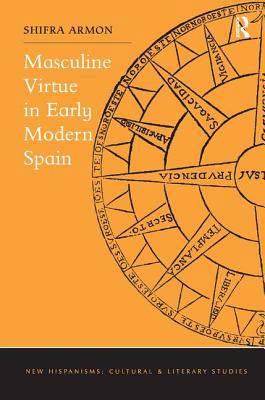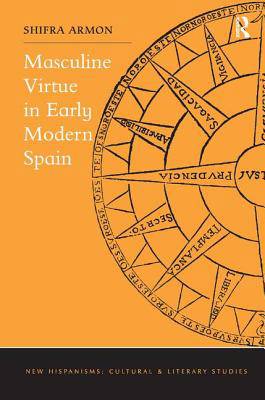
- Afhalen na 1 uur in een winkel met voorraad
- Gratis thuislevering in België vanaf € 30
- Ruim aanbod met 7 miljoen producten
- Afhalen na 1 uur in een winkel met voorraad
- Gratis thuislevering in België vanaf € 30
- Ruim aanbod met 7 miljoen producten
Zoeken
Omschrijving
Masculine Virtue in Early Modern Spain extricates the history of masculinity in early modern Spain from the narrative of Spain's fall from imperial power after 1640. This book culls genres as diverse as emblem books, poetry, drama, courtesy treatises and prose fiction, to restore the inception of courtiership at the Spanish Hapsburg court to the history of masculinity. Refuting the current conception that Spain's political decline precipitated a 'crisis of masculinity', Masculine Virtue maps changes in figurations of normative masculine conduct from 1500 to 1700. As Spain assumed the role of Europe's first modern centralized empire, codes of masculine conduct changed to meet the demands of global rule. Viewed chronologically, Shifra Armon shows Spanish conduct literature to reveal three axes of transformation. The ideal subject (gendered male in both practice and law) became progressively more adaptable to changing circumstances, more intensely involved in currying his own public image, and more desirous of achieving renown. By bringing recent advances in gender theory to bear on normative rather than non-normative masculinities of early modern Spain, Armon is able to foreground the emergence of energizing new models of masculine virtue that continue to resonate today.
Specificaties
Betrokkenen
- Auteur(s):
- Uitgeverij:
Inhoud
- Aantal bladzijden:
- 156
- Taal:
- Engels
- Reeks:
Eigenschappen
- Productcode (EAN):
- 9781472441898
- Verschijningsdatum:
- 28/03/2015
- Uitvoering:
- Hardcover
- Formaat:
- Genaaid
- Afmetingen:
- 156 mm x 234 mm
- Gewicht:
- 403 g

Alleen bij Standaard Boekhandel
+ 610 punten op je klantenkaart van Standaard Boekhandel
Beoordelingen
We publiceren alleen reviews die voldoen aan de voorwaarden voor reviews. Bekijk onze voorwaarden voor reviews.








